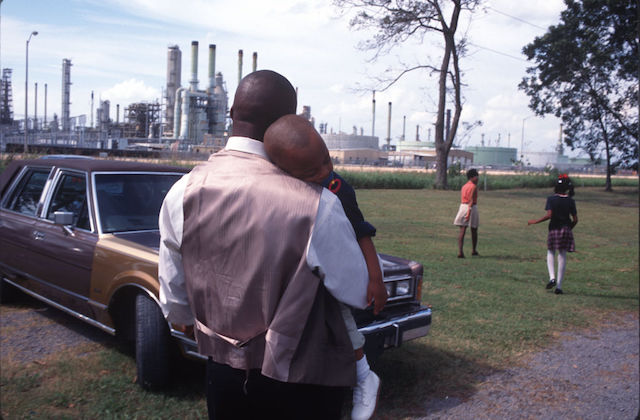Residents and environmental activists of Louisiana’s “Cancer Alley” headed to Japan to confront the company that owns the chemical plant they believe is killing them.
Over the past week, people from Reserve, Louisiana, have attended a series of events across Tokyo to draw attention to the harmful practices of the company Denka. Since 2015, Denka has owned the Pontchartrain Works Facility in Reserve. The majority Black town of 10,000 is considered at the highest risk of cancer caused by toxic air anywhere in the United States, according to the Environmental Protection Agency (EPA).
Reserve is in what environmental justice advocates call Cancer Alley, an area located between New Orleans and Baton Rouge that is home to 45,000 people. There are about 50 toxic chemicals in air in this region, including benzene, 1,3-butadiene, formaldehyde, chloroprene and ethylene oxide [EtO], which present extreme health risks to residents.
Per The Guardian:
rnt
The primary cause of this extraordinary risk level: the Pontchartrain Works facility and the chloroprene that belches from its stacks. Although there are more than 50 toxic chemicals that contribute to the risk here, chloroprene, the primary component of the synthetic rubber neoprene, is responsible for the vast majority. It is a product that has for almost a century been used all over the world in the manufacture of tires, wetsuits, medical equipment and countless other products—and the Louisiana plant is the only place in the U.S. that produces it.
The trip to Japan was organized by the U.S.-based organization University Network for Human Rights (UNHR). It included both public and private meetings with environmental groups and Denka stakeholders. The Guardian called it “a significant escalation in the residents’ campaign for clean air.”
Among those who went was Robert Taylor, a 77-year-old environmental activist from Reserve and founder of Concerned Citizens of St. John the Baptist Parish. He is also the lead plaintiff in a lawsuit filed by Reserve residents against DuPont (the factory’s previous owner), Denka and state agency Department of Environmental Quality.
At a public event at social justice nonprofit Pacific Asia Resource Centre on Monday (June 24), Taylor reportedly said:
rnt
We began to go down with strange diseases, cancers, respiratory problems, skin conditions, heart problems. These diseases were so prevalent my daughter, who worked as a nurse and used to look after us when we got sick, developed gastroparesis [a stomach disorder]. The doctors said it was a rare immune system condition which was caused by the pollution from the plant, but they wouldn’t go on record. Three other women in the community developed the same condition.
Reserve residents also attempted to attend Denka’s annual shareholders meeting (the day before that meeting, Denka posted a statement on its website saying “the carcinogenic risk level assigned to chloroprene … is overestimated”). Denied entry, they instead protested outside, handing out flyers and holding a sign that read “Denka, Stop Poisoning Black People” written in English and Japanese.
rnt
7/10 On June 21, Robert Taylor and Lydia Gerard spoke at press conference at Japan’s Environment Ministry. Watch as Lydia Gerard talks about her husband Walter, who died of kidney cancer almost exactly one year ago after inhaling chloroprene his whole life: #DenkaChloropreneKills pic.twitter.com/KTzpwvIevn
rnt— University Network for Human Rights (@unitedforrights) June 23, 2019
rn
rntThe UNHR’s next move is to contact European and American shareholders of Denka to reveal the health risks for those who live near the plant. And in July, it will release results of a 2018 study it conducted on the health of 500 households near the chemical plant that show that health problems increase the closer one lives to the facility.
“Denka is disputing the findings of the EPA and any scientist who says that chloroprene causes cancer,” Lydia Gerrard, a Reserve resident who went to Japan and whose husband died of cancer last year, told The Guardian. “We wanted them to hear us, to know that we’re not going to go away and be quiet.”
